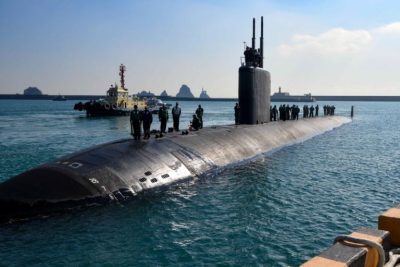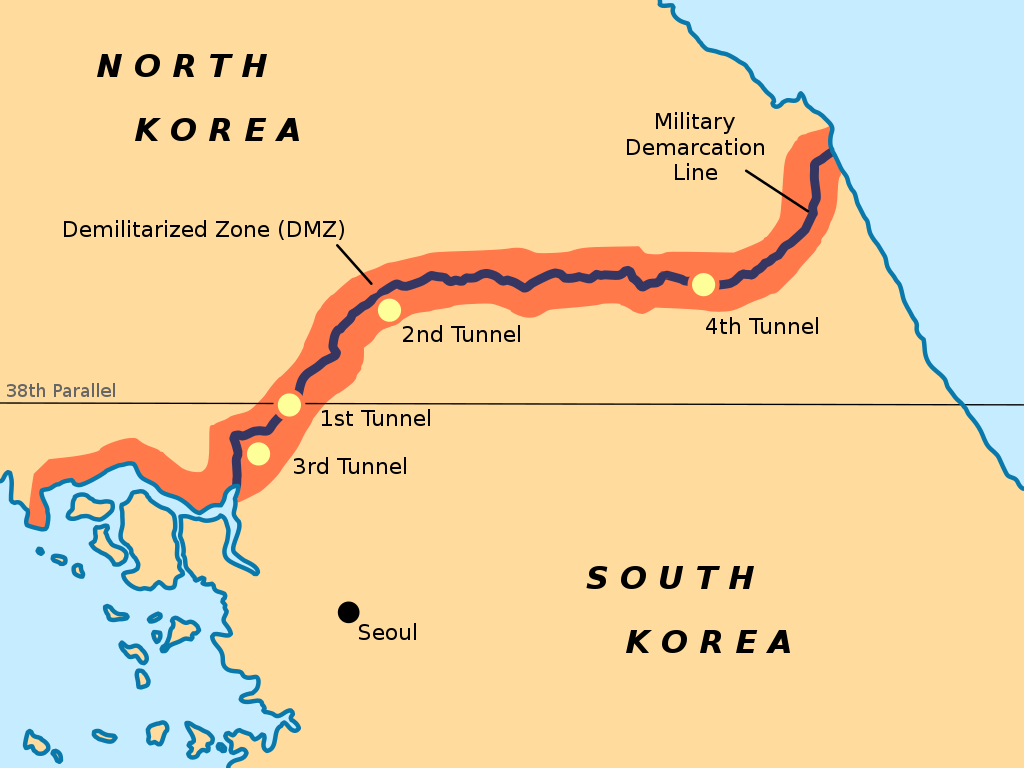Lessons from the Korean War

All Global Research articles can be read in 51 languages by activating the Translate Website button below the author’s name.
To receive Global Research’s Daily Newsletter (selected articles), click here.
Click the share button above to email/forward this article to your friends and colleagues. Follow us on Instagram and Twitter and subscribe to our Telegram Channel. Feel free to repost and share widely Global Research articles.
***
The psychology of forgetting and why memory fails is a tantalising topic in the life of individuals or nations. Cognitive psychology spawned many theories about it. The main theory, the motivated forgetting theory, is the most charming as it is easy to relate to it: people forget things in the pitiless flow of life because they either do not want to remember, and painful and disturbing memories are, thus, made unconscious and very difficult to retrieve, albeit they still remain in storage in the attic of the mind.
The United States and the Korean War (25 June 1950 – 27 July 1953) is a case in point. Succinctly put, the war ended at a juncture when a “stalemate” prevailed, which in reality meant that defeat was staring at the face of so-called “UN forces” — as happened in Afghanistan. In the chronicle of America’s wars, the Korean War, therefore, became the “forgotten war,” subject to forgetfulness and put away in the attic of collective consciousness.
However, torchlights are being held at the attic, as the 70th anniversary of the signing of the Korean Armistice Agreement stealthily approached last Thursday. One principal reason for the curiosity must be the contemporary relevance of the Korean War, which was also a proxy war for the Cold War, like the US’ ongoing war in Ukraine against Russia, which is also in a stalemate insofar as NATO failed to win the war, and another humiliating defeat, but much worse than in Afghanistan, is probably in store.
It is China which has the greatest stakes in resurrecting the true lessons of the Korean War. What perturbs Beijing is not only that the Washington elite have not only drawn some wrong lessons, but they are also “all targeted at China, specifically referring to the Taiwan question.”
The most notable revisionist theory has been advanced by none other than Mike Gallagher, the 40-year old former US Marine Intelligence Officer who is currently the Chairman of the House Select Committee on the Strategic Competition Between the United States and the Chinese Communist Party, and is a trenchant critic of China’s policies on the Hill, and also an ambitious politician who is already a leading voice of the Republican right across the board — who once sought legislation to ban federal agencies, such as the departments of the Health and Human Services, Veterans Affairs, and Defence from purchasing drugs manufactured in China; and, currently advocates for President Biden to give F-16 fighter jets to Ukraine.
Hard Truth About Nuclear Wars
What surprised China, perhaps, was that on the eve of the 70th anniversary of the Korean Armistice, Foreign Affairs magazine featured an article by Gallagher, which postulated three “lessons” that the Korean War taught the US —
first, “Washington must not neglect deterrence and readiness,” and should always be prepared to fight and enhance military capabilities;
second, “politics and combat are deeply intertwined”; and,
third, once fighting breaks out anywhere with US involvement, “excessive self-restraint can invite further aggression.”
No doubt, these “lessons” drawn in the Beltway are manifestly targeted at China, and the timing of Gallagher’s essay in a leading public diplomacy organ of the US foreign policy establishment is not coincidental.
Indeed, China is today far more capable of inflicting pain and damage to adversaries trampling upon its security interests and national sovereignty. The fact of the matter is that the US paid a heavy price by its intervention in a proxy war in the Korean Peninsula, predicated on flawed premises — to begin with, misperceiving the conflict as the first step in a Soviet plan under Stalin to use military means to achieve global dominance. (Around 36000 US military personnel were killed in Korea, out of a total of around 40,000 deaths for the UN forces combined.)
Equally, the US made the catastrophic overreach to ignore Peking’s warnings as bluffing and blithely estimated that China wouldn’t intervene if the US forces crossed the 38th parallel. Gen. Douglas MacArthur, the US commander, assured President Harry Truman that China would not enter the war. (But Mao already had decided to intervene after concluding that Beijing could not tolerate US challenges to its regional credibility!)
Similarly, invading North Korea was an incredible blunder that transformed a three-month war into one lasting three years.
However, a historically contentious detail still remains without definitive conclusion — that the US had toyed with the idea of using atomic weapons against North Korea (and possibly China as well) with a view to shift the overall military balance in its favour and force them to the negotiating table. Indeed, both President Truman and his successor Dwight Eisenhower continued to posit that such an option was on the table, as it emerged by the end of the summer of 1950 already that the good guys would lose the war.
Of course, in the event, an atomic attack by the US never materialised despite the fact that the Soviet atomic capabilities were still extremely limited compared to American ones, Washington’s nuclear monopoly was largely intact, and the US remained the only nation capable of delivering an atomic bomb to a distant target.
Looking back at the end of the day, although steps were taken to ensure that an atomic option was available — through a series of threats, feints, and even practice runs — it remains debatable how serious the American leadership was.
The bottom line is that in the Korean War, the US confronted the hard truth that threatening a nuclear attack would not be enough to win the war. And the nuclear Korean War simply petered out. That is a historical truth that is unlikely to be forgotten today as a “lesson” when the US faces not one but three nuclear powers in Northeast Asia and all three with deterrent capability.
That is why the visit by a US nuclear ballistic missile submarine to Busan, South Korea, on July 22, the first visit by a US submarine since 1981, which some US congressmen interpret as not only a warning to North Korea but also a deterrent against China, can only be seen as empty bravado.
Against such a historical complex backdrop, a Global Times editorial hit out on Wednesday:
“China decided to resist the US aggression and aid North Korea during the Korean War, it had repeatedly sent stern warnings that if US forces crossed the 38th parallel China would not sit idle. However, the US did not take it seriously, thinking that China was only making empty threats and would not take action. As a result, they were caught off guard when they encountered the Chinese People’s Volunteers Army on the battlefield. Today, a similar major misjudgment toward China is occurring in Washington.
The biggest difference between now and the Korean War era is that China’s strength has greatly increased. The consequences of infringing upon China’s security interests and national sovereignty will undoubtedly be much more severe… However, it must be clear that if there is another strategic misjudgment this time, the price it will pay will surely be much higher than 70 years ago.”
The aphorism frequently attributed to Mark Twain comes to mind — ‘History doesn’t repeat itself, but it often rhymes.’ Certainly, the history of the Korean War rhymes with the war in Ukraine. While the details, circumstances or settings may have changed, similar events have essentially recycled.
Ukraine Rhymes with Korean War
The fundamental difference is that while not even the worst detractors of the US would allege that Washington precipitated the Korean war, when it comes to Ukraine, even the best apologists of the western narrative draw a vicarious pleasure that the US set up a bear trap by its obduracy not to negotiate Russia’s legitimate security concerns and brilliantly turned Ukraine into an anti-Russian state. In effect, the US created the setting for a proxy war — unlike in Korea where its direct intervention in the inter-Korean conflict and MacArthur’s belligerent escalation transformed it as a protracted war that lasted for 3 years.
The big question is whether it was the US’ nuclear blackmail that spurred peace talks brought about the armistice in July 1953. Let facts speak for themselves. During the spring of 1953, Eisenhower developed plans for nuclear attacks on China and conveyed them to the Communists to intimidate them into accepting favourable terms for an armistice. Did Mao feel intimidated?
Wouldn’t China (and Russia) have known that the frightened US allies in Western Europe had registered strong opposition to using nuclear weapons in Korea — and, furthermore, that worries about allies withdrawing from the Korean theatre and leaving the Americans in a limbo would have made it difficult to nuke China and North Korea? The salience is that in any future war, a nuclear power would be more likely to use atomic bomb than one wanting to maintain the support of allies. Wouldn’t the Russians know it in Ukraine? (See Nuclear Blackmail and the End of the Korean War by Edward Friedman, Modern China, Jan 1975)
Anyway, there has been a paradigm shift today. Russia today has nuclear superiority over the US and its allies. Unlike during the Korean War, North Korea and China now possess nuclear weapons and missiles to deliver them. But a cardinal difference in this paradigm shift is also that neither Pyongyang nor Beijing developed nuclear weapons capabilities as part of plans to initiate a war but, instead, to deter a US attempt to destroy them. The same holds good for Russia in Ukraine.
*
Note to readers: Please click the share button above. Follow us on Instagram and Twitter and subscribe to our Telegram Channel. Feel free to repost and share widely Global Research articles.
Featured image: The Los Angeles-class fast-attack submarine USS Springfield in Busan for a port visit, South Korea, July 22, 2023


